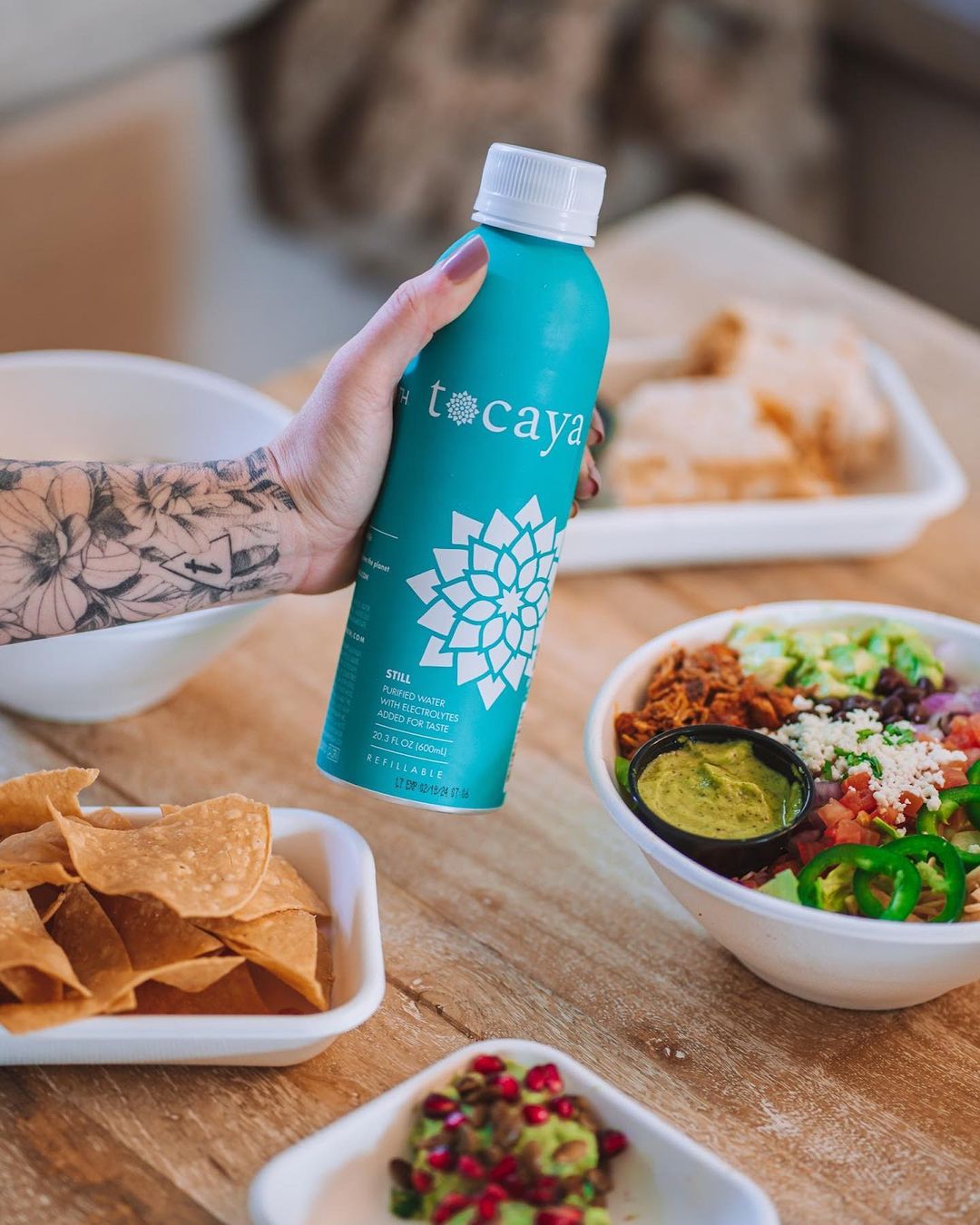The food and beverage industry has turned a pivotal corner when it comes to sustainability. As 67% of consumers prefer to buy from sustainable businesses, adapting to these new standards and growing consumer demands for sustainability means developing initiatives to reduce waste and improve food and beverage footprint.
The sustainability shift has resulted in leading restaurants partnering to reduce single-use plastic, like the HOW initiative to reduce default plastic utensils that come with food delivery orders. Forward-thinking food and beverage companies are partnering with PATH to offer cobranded refillable aluminum bottled water.
More than driving a single initiative, consumer behavior is influencing better industry-wide practices and purchasing decisions. The industry's response has been to innovate and seek partnerships that align with these values, exemplified by the collaborative efforts with PATH.
The PATH Cobrand Partnerships within the Food & Beverage Industry align with the second strongest element of environmental sustainability that is important to restaurant consumers by 67%, packaging materials.
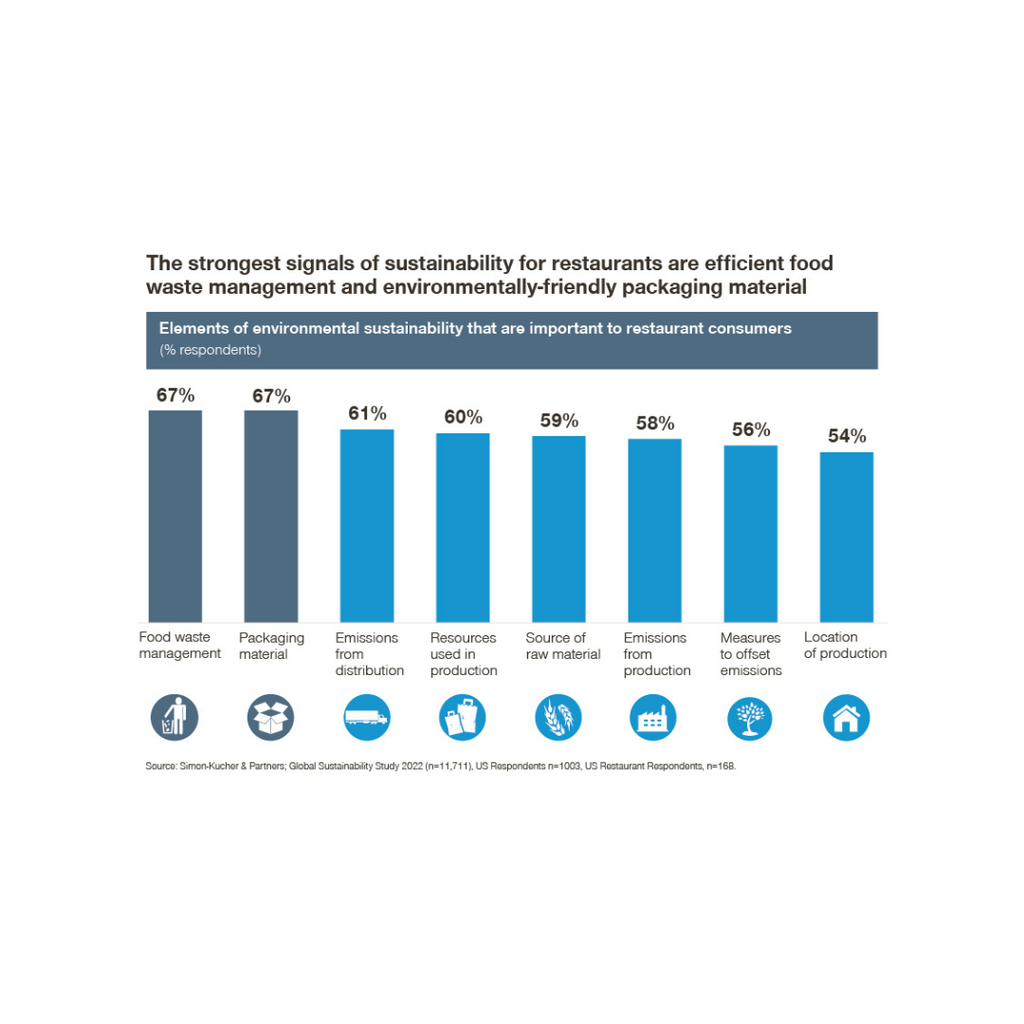 The rise in demand for sustainable dining
The rise in demand for sustainable dining
Recent insights reveal a significant shift in consumer behavior, particularly among younger generations such as Millennials and Gen Z. These groups are more aware of sustainability issues and are also willing to back their beliefs with their wallets, indicating a readiness to pay an average premium of 20% for sustainable meals. This willingness surpasses the simple preference for eco-friendly products and shows a deeper commitment to environmental responsibility and a desire for sustainable dining experiences.
Insights from the US Restaurant Sustainability Study
The US Restaurant Sustainability Study sheds light on the importance of sustainable choices for consumers, highlighting a growing trend that sees environmental consciousness as a key factor in dining decisions. The study reveals that most consumers are willing to pay over a 10% price premium to dine at green restaurants, with an average price premium for environmentally sustainable meals at 20%.
Generational willingness to pay for sustainability
The food and beverage industry's sustainability initiatives resonate differently across various age groups, with younger generations showing a pronounced willingness to invest more in eco-friendly dining options. This section delves into the generational perspectives on paying a premium for sustainability, underlining the evolving consumer expectations and the business opportunities they present.
Generational shifts toward sustainability
A significant shift towards sustainability, with Millennials and Gen Z showing the highest willingness to pay more than a 20% premium for green dining options. A comparison of generational differences in sustainability investment illustrates a decreasing willingness to pay a higher premium with increasing age.
- Baby Boomers (ages 59 to 77)
- 73% are willing to pay a 1% to 10% price premium for sustainability.
- Gen X (ages 43 to 58)
- 37% demonstrate a medium willingness to pay, indicating a preference for an 11% - 20% price premium.
- Millennials (ages 27 to 42)
- 36% are prepared to pay a more than 20% price premium for green restaurants.
- Gen Z (ages 11 to 26)
- 50% reported being willing to pay more than 20% price premium.
This data underscores a pivotal shift in consumer behavior, with younger generations leading the charge toward sustainability in the food and beverage sector. The marked willingness of Millennials and Gen Z to pay a substantial premium for sustainable dining experiences reflects a broader trend of environmental consciousness and a desire for responsible consumption. For restaurants, this trend offers a clear indication that incorporating sustainable practices is not just beneficial for the planet but also aligns with the expectations and values of their future customer base. Embracing sustainability can serve as a significant growth opportunity, allowing businesses to connect with eco-aware diners and establish themselves as leaders in the green movement within the industry.
Implementing sustainable practices in the Food and Beverage Sector
While there are many strategies to improve sustainability in the food and beverage industry, here's a list of general measures that can be taken.
- Promote reusability and reduce single-use plastic waste
- Improve packaging solutions
- Increase energy and water efficiency
- Implement or purchase renewable energy
- Create customer recycling initiatives
- Implement circular economy principles
- Support local and Fair Trade practices
- Invest in Sustainable R&D
- Engage in policy advocacy for environmental issues
- Foster partnerships for sustainability
- Monitor and report on sustainability metrics
- Sustainable food sourcing
- Have a strategy to cut food waste and compost
- Embrace regenerative agriculture
- Enhance transparency and important ethical practices
- Leveraging technology for efficiency
- Decarbonizing your supply chain
The role of PATH in pioneering sustainability
PATH Water has been the leader in bringing genuine sustainability to the bottled water industry, challenging the status quo with its innovative approach to reducing environmental impact. Recognizing the critical role of Life Cycle Assessments (LCAs) in understanding a product's environmental footprint, PATH has embraced the cradle-to-cradle model, emphasizing the importance of a product's end-of-life scenario. Through partnerships with food and beverage companies, PATH has had an exponential impact on sustainability via cobranded bottled water initiatives.
PATH cobrand partners have effectively communicated the importance of sustainable consumption practices to consumers. The success of PATH's sustainability campaigns is evident in the shift in consumer behavior towards more environmentally friendly choices. Here's just a taste of some of the excellent PATH cobrand partners that have taken the initiative to make a measurable impact on the planet.
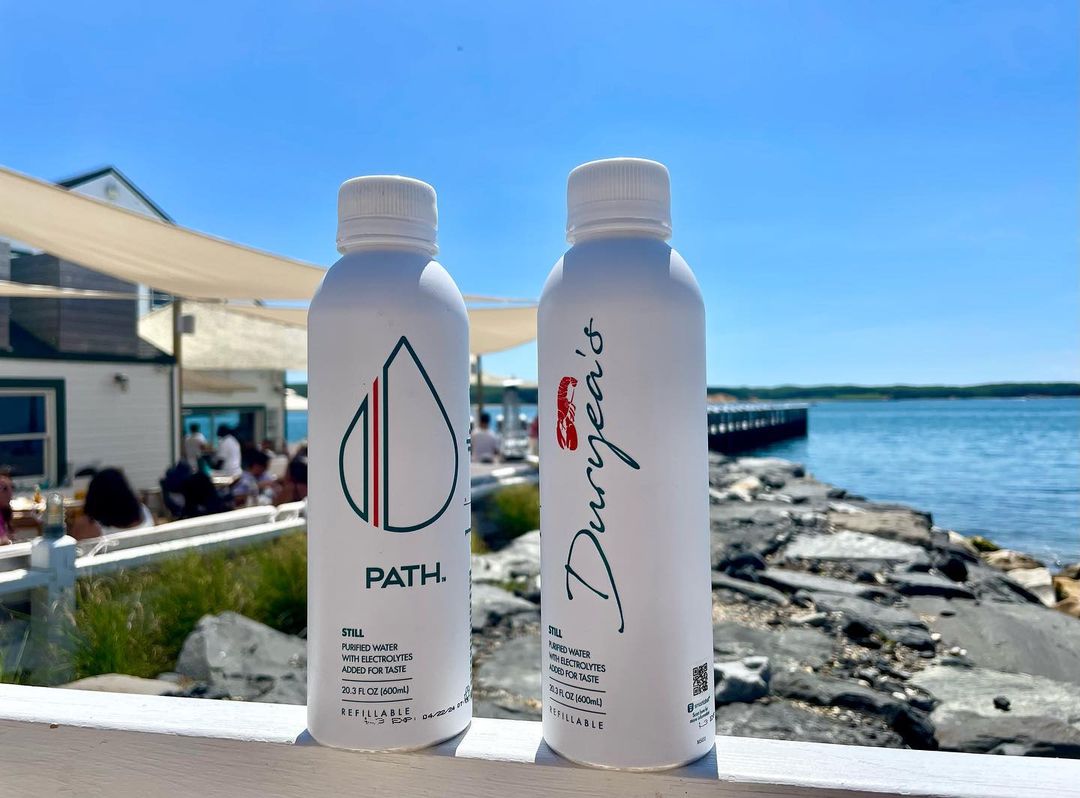

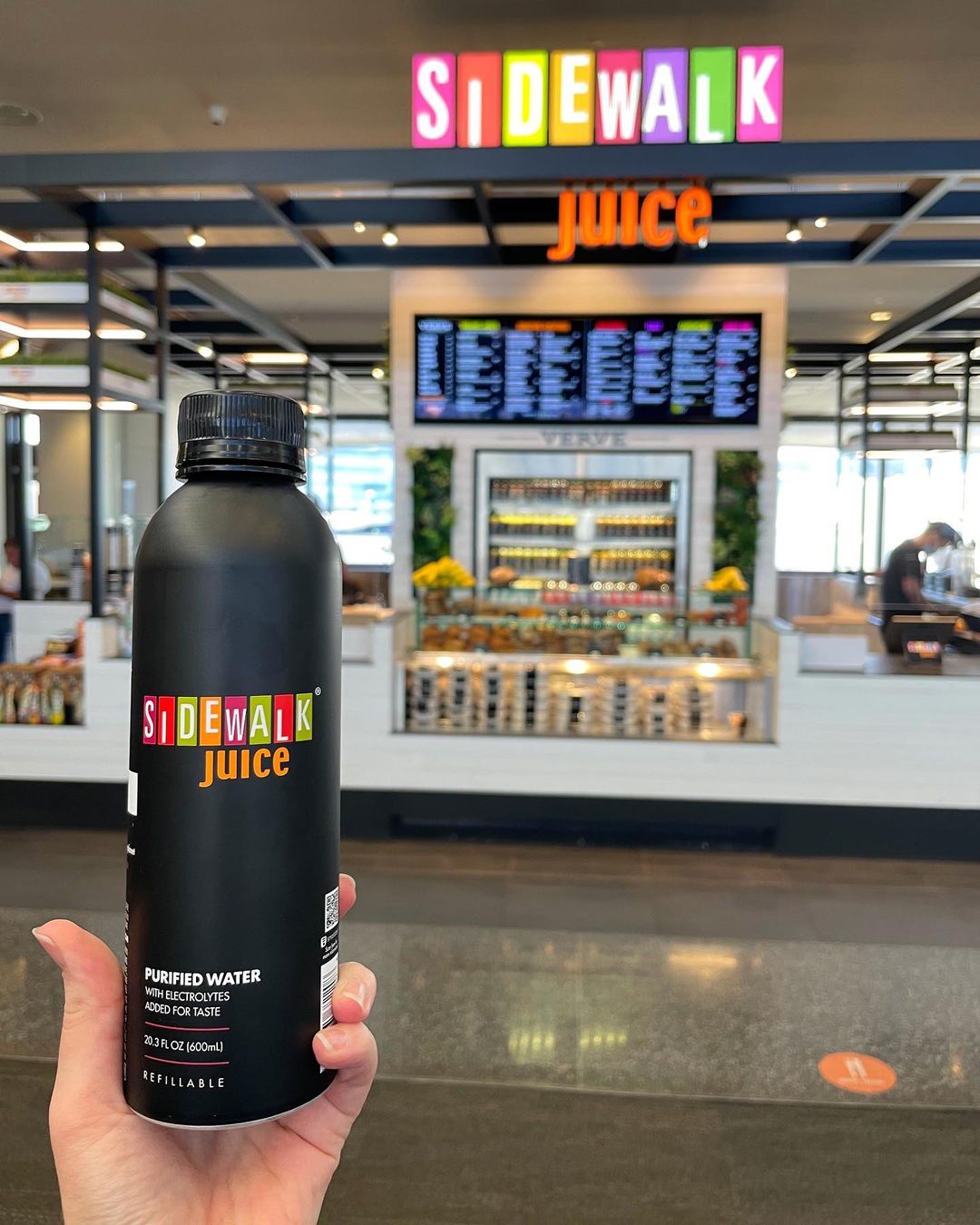
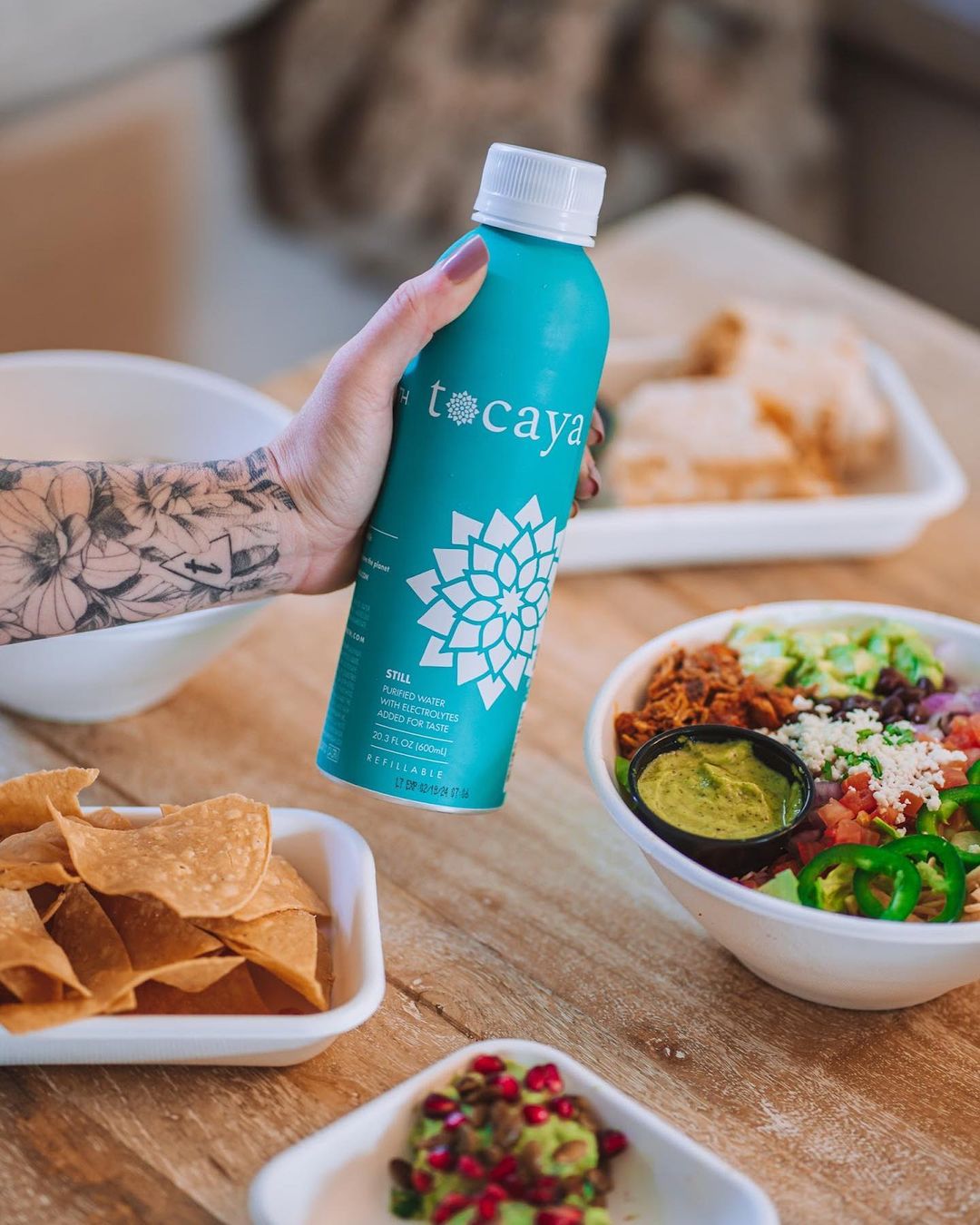

The food and beverage industry is uniquely positioned to lead the charge in greening up consumer habits and making their impact on the planet much lighter by implementing strategies that emphasize sustainability. By focusing on initiatives that reduce reliance on single-use plastics and promote refilling options, companies can appeal to an increasingly eco-aware customer base, setting new standards for environmental responsibility within the industry.
For food and beverage companies eager to elevate their sustainability efforts and engage with their customers in a meaningful way, co-branding with a PATH bottle offers a unique opportunity. We invite you to visit our partnership page to explore this partnership and make a tangible impact on reducing single-use plastics.








